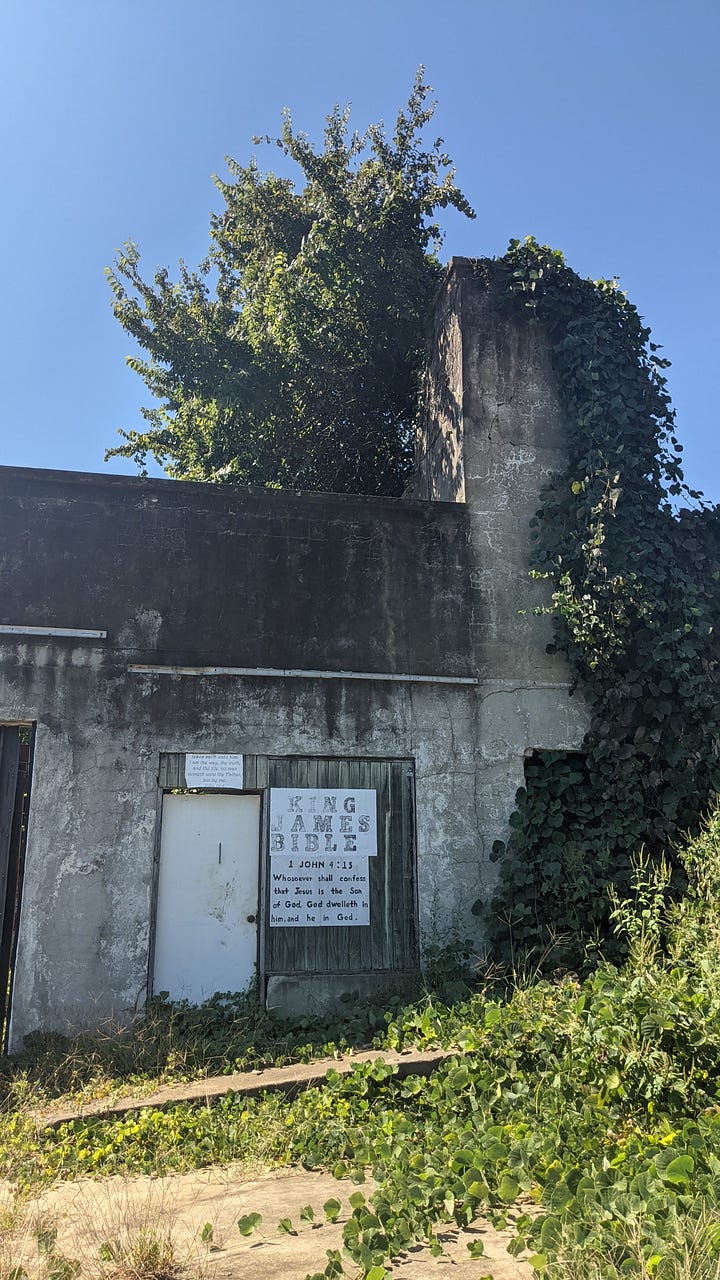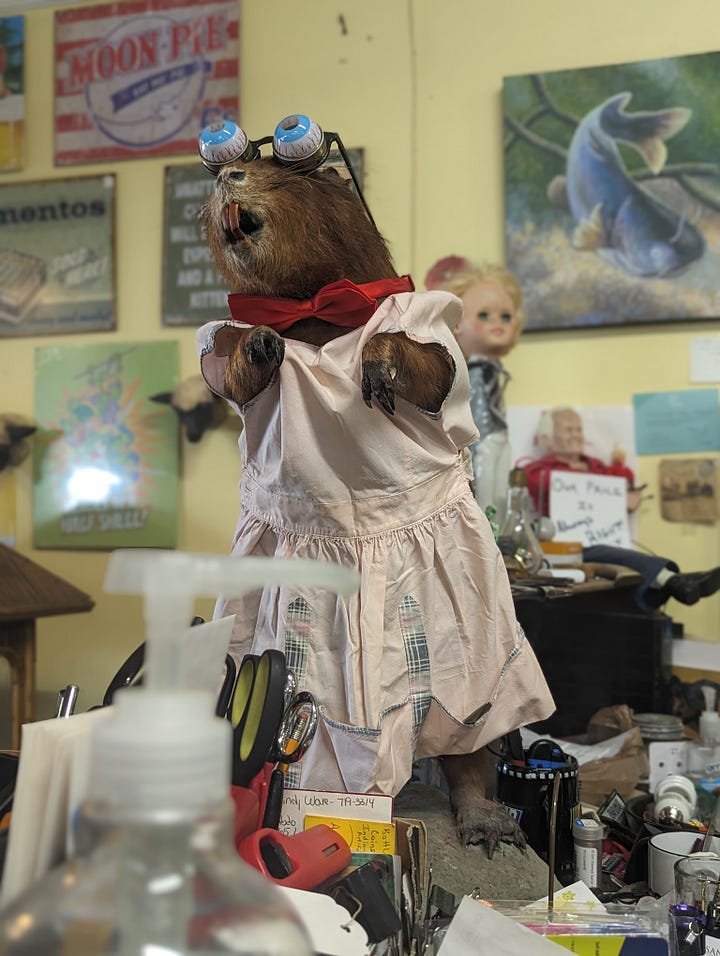Crooked Letter, Water Dipper, Tall Men, Bass Note, You + Me
A Mississippi Road Syllabus by Jennie Lightweis-Goff
The Poetry of Voice-To-Text
Indianola, 2023
I texted him when I got home, a promise I try to keep. Home tonight was the loft of a barn somewhere between Memphis and New Orleans, a $60 rustic rental that meant I wouldn’t have to whip around and double-back after work: the one taboo of a traveler’s life. The penalty usually costs more than $60: I’ve likely bought two cars’ worth of plane tickets by refusing a connecting flight that backtracks. I want it halfway or nowhere. I want Chicago in the center of the Atlantic, LAX in the Pacific.
But it’s voice-to-text: I’m sleeping a little off the beaten half. I leave a footprint in the sponge of water-damaged parquet over the old barn floor. I don’t notice the soft landing of half instead of path before I press send. But he admires the beaten half. When we’re in the same room, we’re a country duet, but I’m another genre on my own. The beaten half shares a border with my fighting side, and I cross that border on exhausted nights. The beaten path is a fair place to visit: I follow the tourists to historical markers and half-dead house museums on bright mornings. The waystations and coffees and bathrooms are there for them, and I haven’t found a way to survive without the comforts they offer my body. The beaten half, despite its weary, slow, dirt road horror tread, overtakes me on dark nights: counts my injuries and the way my life fails to measure against some ancestor’s at 44. Or my grandmother, who never made it to 44. The beaten half is couch-lock and oversleep, a rattling Keurig and a wobbly table.


Little Milton’s “Grits Ain’t Grocery” (1969) / Chuck Berry’s “Promised Land” (1964) / Lloyd Price’s “Stagger Lee” (1957) / Robert Johnson’s “Sweet Home Chicago” (1936) / Memphis Minnie’s “Killer Diller Blues” (1940s)
Beijing, 2018
The truth is that I’m not from anywhere, so I love Bob Hicok’s “Primer” (2008), his poem for Michigan. He lists the state’s locked factory gates and year-long February as deficits but ends with a praise-song for its particularity. “Let us all be from somewhere,” he says. “Let us tell each other everything we can.” I’m a New Yorker who moved to Appalachia in childhood, then aimed for New Orleans to mature from teen to adult and then demimondaine. If my trajectory continues, my final form is cranky Mississippi ascetic.
On a hot August day, I drove between my classroom in Oxford and my home in New Orleans. I passed Little Milton Avenue in Inverness, Mississippi and ended up on Lloyd Price Drive in Kenner, Louisiana. You could have decanted the sweat on my driver’s seat, but I did not curse my black leather interior. I made a playlist called 260 Miles, flush with Mississippi songs I passed through to get to Lloyd. His “Stagger Lee” was enough to get to heaven; “Personality” is a hell of a bonus. To be honest, I need the playlist to cover the miles I drive in the service of Mississippi’s flagship university: I’ve taught in Grenada, Tupelo, Oxford, and Southaven. I’ve sat in classrooms in Booneville and at Parchman. Universities are global, of course, interested in attracting international students who are ineligible for financial aid. (That price point is better, to the money men’s nostrils, than any drug I’ve taken). On one memorable occasion, I taught Southern Literature in Beijing. Americans assume the world knows us, but when I said I was from New Orleans, Shanghai waiters switched to French. That’s a polyglot, port city: up north in Beijing, the only south they knew was a bullet train away. They lacked associations and stigmas: they hadn’t seen Mississippi’s fires or its ghosts in American cinema. Few had heard about our crossroads.
Keep reading with a 7-day free trial
Subscribe to Rooted Magazine to keep reading this post and get 7 days of free access to the full post archives.




